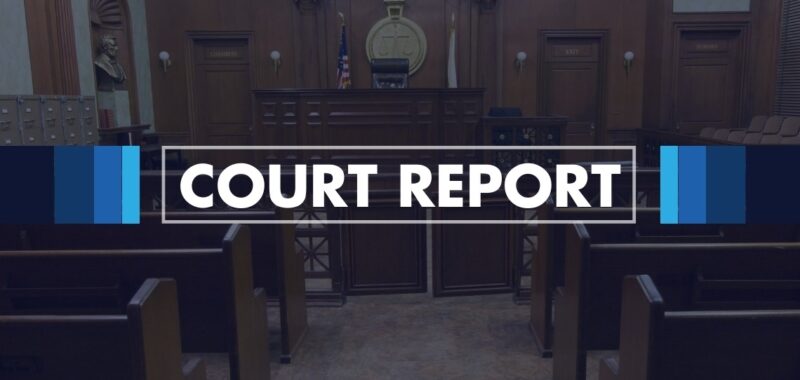Deadlines in some of the biggest cases affecting real estate are fast approaching, with final settlement hearings for half a dozen big brokerages scheduled for Halloween, and the last date for the Department of Justice to intervene in the National Association of REALTORS®’ (NAR) deal only a few days before that. In the meantime, there have been a couple October surprises, including a pause in the largest cases filed by homebuyers, and something that was not a surprise—NAR’s expected but still landmark appeal to the Supreme Court.
And eXp, facing more accusations of sexual assault cover-up, had a plaintiff admit to a small but significant error in a new lawsuit and issue an official correction in court.
Here is the latest from the courtroom this week:
NAR seeks to force closure of DOJ investigation
The National Association of REALTORS® filed its petition last week to the Supreme Court in a long-running, contentious dispute with the Department of Justice (DOJ) over an ostensibly shuttered investigation into various NAR policies, asking the highest court in the land to step in and block the inquiry, which currently threatens to force even more policy changes or penalties on an already reeling industry.
An appeals court previously allowed the DOJ to reopen its investigation after it had agreed to close the inquiry back in 2020.
In a statement, an NAR spokesperson characterized the petition, which it previously indicated it would file, is about fighting for members.
The Supreme Court only takes up a tiny fraction of petitions, and it is unclear if they will intervene in this case. In the brief, NAR argued that the case includes “issues of critical legal and economic significance.”
“Without intervention from (the Supreme Court), the position adopted by the (appeals court) panel majority will expose businesses and private citizens to perpetual uncertainty regarding the government’s commitments or representations when settling investigations—particularly in the wake of changes in control of the Executive Branch,” NAR wrote.
eXp shareholders correct ‘error’ in sexual assault lawsuit filing
Two pension funds, which are shareholders in eXp, last month sued the mega-brokerage in Delaware for allegedly covering up sexual assaults committed by top recruiters at the company, and fostering a culture of retaliation and fear.
But they also made a major error, claiming that a lawyer representing eXp had admitted that information contained in separate lawsuits filed by multiple alleged victims—women who claim they were assaulted by the recruiters—was “truthful and accurate.”
In a follow-up filing nearly two weeks later, a lawyer representing the pension funds said they had meant to write that a lawyer representing the alleged victims had attested that their lawsuit was accurate, not an eXp lawyer.
“We apologize for this error,” the pension funds’ lawyer wrote.
JPAR fights on in copycat
As nearly every mid-size or larger brokerage has found ways to negotiate settlements in the seller class-action commission suits, Texas-based JPAR appears prepared to fight on, filing a 21-page brief asking a judge to throw out a Burnett copycat case last week.
According to court documents, the company had previously engaged in settlement talks, and it was not immediately clear if those negotiations were still ongoing.
Making many of the same arguments as other companies have, JPAR also noted that it only “entered the business” in 2011, a decade and a half after the adoption of rules at the heart of the commission lawsuits.
“Plaintiffs do not allege how JPAR joined the conspiracy that existed before it came into existence. Without specific allegations showing how JPAR joined and furthered the conspiracy, the (lawsuit) fails to allege a claim,” JPAR argued.
Companies with seller settlements will await appeal in buyer cases
Judge LaShonda Hunt of the Northern District of Illinois, who only recently took over the complex litigation after the previous judge recused herself last month, said she would stay proceedings against Keller Williams, Anywhere and RE/MAX in the largest buyer cases, pending an appeals court ruling in the seller cases.
Hunt’s decision will allow an appeals court to make its own determination on a dispute regarding whether settlements struck in seller lawsuits include protections from claims made by buyers, which could either significantly shrink the potential size of a class, or validate the fear of many defendants that their settlement agreements provide only partial protection against commission-focused lawsuits.
Both plaintiffs and defendants had sought the pause, with plaintiffs asking the Eighth Circuit to overturn another district judge’s decision that the settlements include some immunity from the buyer lawsuits.
Hunt also notably chose to leave the current schedule of the buyer cases in place, with a trial proposed for as soon as 2026 in one of the cases.
Lawyers for eXp, Glenn Sanford fight against discovery requests
With mega-brokerage eXp facing multiple civil lawsuits accusing the company of being complicit in a “scheme” of druggings and sexual assaults by top recruiters, lawyers representing the company butted heads with plaintiffs on multiple issues at a court hearing for two of the cases on Tuesday, Oct. 8.
The plaintiffs argued that trying to categorize complaints under just the banners of harassment or assault could lead to certain incidents that are applicable to the case being left out of discovery.
Facebook Workplace Chat has been an issue of contention throughout the discovery process as well, as the defense have stated that they cannot pull the data from the platform without having to pay for a specific service, which may be too costly to justify.
Plaintiffs argued against this, however, as the platform is eXp’s main form of communication and it needs to be provided as it would have relevant information to the case, especially in terms of Sanford’s data.
Magistrate Judge Alicia Rosenberg concluded that eXp and Sanford would need to provide the data by October 25, or file a motion for protective order or a separate motion on discrete issues if they feel they cannot get it.

